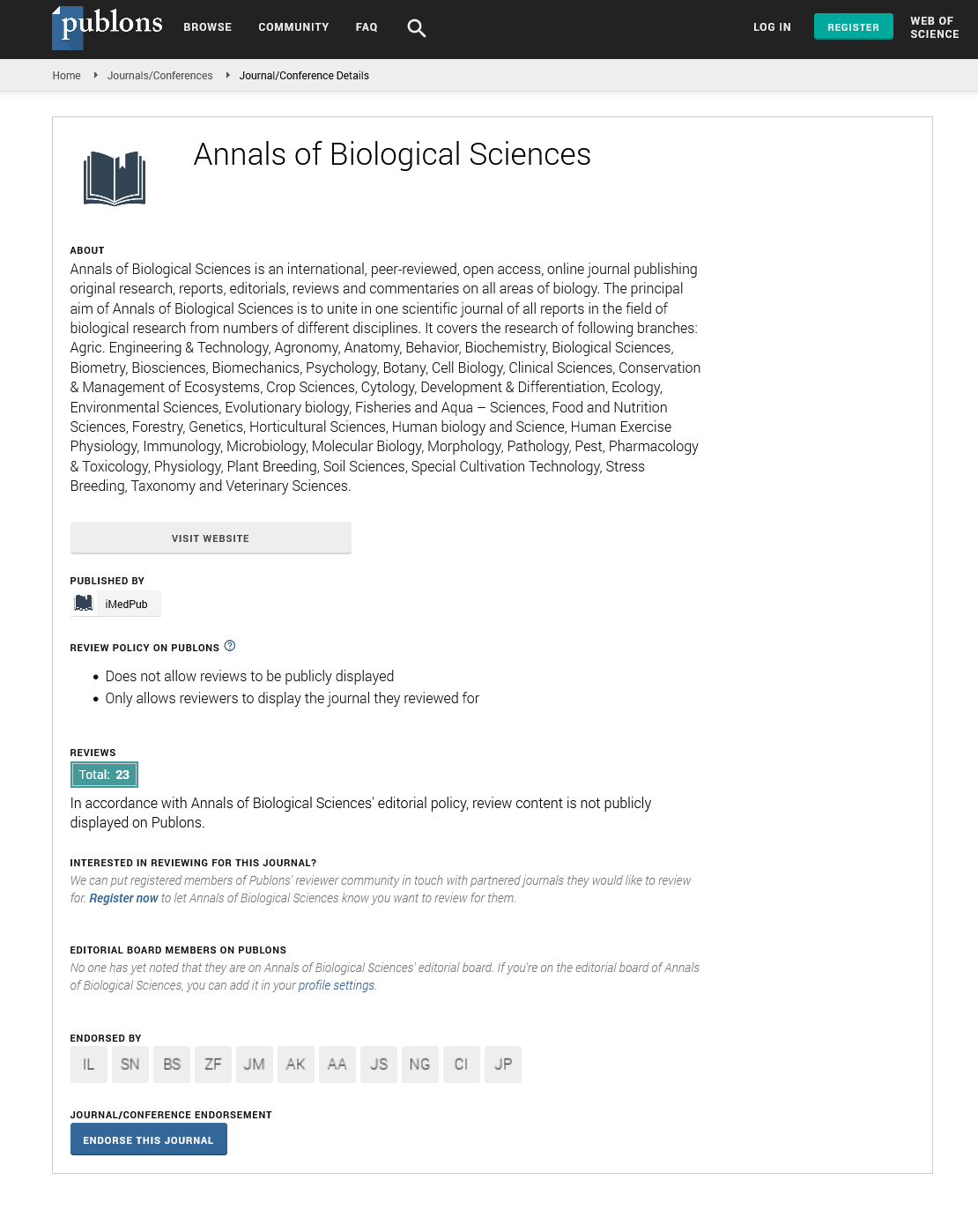ISSN : 2348-1927
Annals of Biological Sciences
Beta defensin 3 enhances ovarian granulosa cell proliferation via MAPK pathway
ANNUAL BIOTECHNOLOGY CONGRESS
August 17-18, 2017 | Toronto, Canada
Canying Liu, Bo Pan, Bingyun Wang and Julang Li
Foshan University, China
University of Guelph, Canada
Posters & Accepted Abstracts: Ann Biol Sci
DOI: 10.21767/2348-1927-C1-003
Abstract
Antimicrobial peptides (AMPs) are regarded as host defense peptides which processes bactericidal, and they have also been reported to have immunomodulatory function in many tissues. However, their role in the mammalian ovary is unknown. We have previously found that beta defensin 2 (BD2) and beta defensin 3 (BD3) are expressed in granulosa cells and cumulus cells during porcine ovarian follicular development and cumulus-oocyte-complex maturation. We hypothesized that these antimicrobial peptides are involved in the regulation of follicular development in ovaries. Granulosa cells were isolated from small (1-3 mm in diameter) and large (4-8 mm in diameter) porcine follicles and cultured in the absence and presence of 1, 10, and 50 �¼g/ml of BD2, and BD3. After 24 hours of treatment, cell numbers were counted using an automated cell counter. It was found that while BD2 appears to have no effect, BD3 stimulated granulosa cell proliferation in a dose dependent manner (p < 0.05). This effect is also dependent on the stage of follicular development, as it is effective on granulosa cell from small but not large follicles. In addition, transwell cell migration assay revealed that in the presence of BD3 (10 �¼g/ml), a 2.5 fold increase in cell migration was achieved. To further study the potential pathway involved in BD3 induced cell proliferation; western blots were performed to determine the ratio of phosphorylated- and non-phosphorylated- ERK1/2. It was found that BD3 significantly increased the phosphorylated- ERK1/2 ratio. Moreover, U0126, the specific ERK1/2 phosphorylation inhibitor, suppressed BD3 induced ERK1/2 phosphorylation and proliferation, suggesting that BD3 may stimulate granulosa cell proliferation via activating the MAPK pathway. Our data suggests that antimicrobial peptides may play a physiological role, in addition to being the traditionally recognized immune-defense mechanism, in regulating follicular development in the mammalian ovary.
Biography
Liu Canying has completed her PhD at the age of 28 years from Huazhong Agricultural University College of Veterinary Medicine. She has just graduated and been the lecturer of Foshan University Department of Veterinary Medicine for about one year. She has published 4 papers in famous journals. She mainly performed research projects about the comparative genomic and pathogenicity analyses of bacteria, immunogenicity analyse of outer membrane proteins of bacteria.
Google Scholar citation report
Citations : 406
Annals of Biological Sciences received 406 citations as per Google Scholar report
Annals of Biological Sciences peer review process verified at publons
Abstracted/Indexed in
- Google Scholar
- China National Knowledge Infrastructure (CNKI)
- WorldCat
- Publons
- ROAD
- Secret Search Engine Labs
Open Access Journals
- Aquaculture & Veterinary Science
- Chemistry & Chemical Sciences
- Clinical Sciences
- Engineering
- General Science
- Genetics & Molecular Biology
- Health Care & Nursing
- Immunology & Microbiology
- Materials Science
- Mathematics & Physics
- Medical Sciences
- Neurology & Psychiatry
- Oncology & Cancer Science
- Pharmaceutical Sciences
